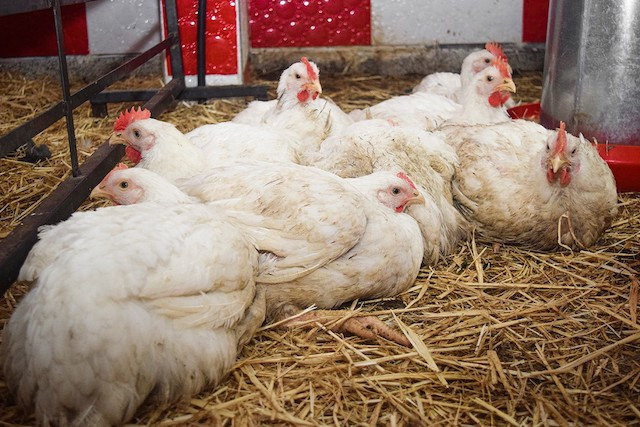At the time of writing, 45 French departments were classified as “high” risk concerning the introduction of avian flu in migratory birds. These mainly concern areas including migration corridors, many of which are located in the Grand Est region: Moselle, Meurthe-et-Moselle, Meuse, Haut-Rhin, Bas-Rhin and Haute-Marne.
As a result, breeders must confine their animals or put up protective nets to prevent contact with migratory birds. It is also forbidden for poultry to be gathered together in markets,and hunters are no longer allowed to release game birds.
In a recent statement, the French agriculture ministry spoke of the "unfavourable" evolution of the virus in Europe and of a "dynamic of infection” which is getting ahead of itself.
The H5N8 virus, a subtype of influenza A, has been present in Europe since December 2019, although the main outbreaks currently listed are in Russia, Kazakhstan and Israel. However, cases are now being reported in northern Germany and the Netherlands 13 cases have been detected in wild birds in the Moselle department, as in the Netherlands, which also includes one case in a broiler farm.
The last episode of such an outbreak in Luxembourg dates back to June 2017. Although the country lies on bird migration route, no cases have been reported, per Schneider on 5 November, in an answer to a parliamentary question asked by MP Gusty Graas (DP). Analyses have been carried out, both on wild birds and domestic poultry, although an eventual onset of the disease in the grand duchy cannot be ruled out.
No action is currently being taken, but if necessary the administration would turn to the formula used during the previous episode in June 2017. These measures are only preventive, because the vaccination of poultry against avian influenza is prohibited in the EU. The obligation for professional breeders is to contain their animals, as well as to feed and water them only indoors. In 2017, the transport and exhibition of poultry was also banned for one week. As a reminder, the minister added that all imported live poultry must be accompanied by a health certificate.
In 2019, the country had 132,138 animals spread over 375 farms, of which only 59 raised more than 50 poultry.
This article was originally published in French on Paperjam.lu and has been translated and edited for Delano.
